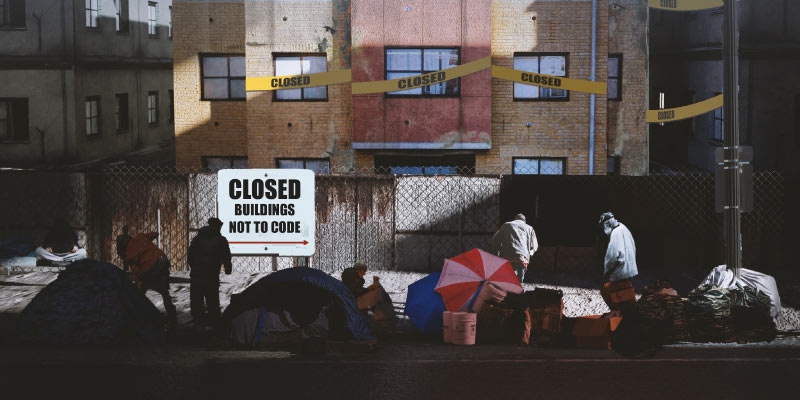Housing Codes, Homelessness, and Affordable Housing
— Published on September 16, 2021

Summary
- Homelessness is a growing problem in Canada; 235,000 people have been homeless at one time or another during any given recent year. Furthermore, at any one time perhaps as many as 5,000 or more are homeless.
- While there are many causes of homelessness and as many suggested programs for dealing with it, this paper addresses one small issue: housing and building codes and how they contribute to the problem by reducing the supply of available housing units.
- Much of the housing that low-income people can find is substandard in that it doesn’t meet modern fire and other safety codes. Because it doesn’t meet housing codes, it is often shut down and taken off the market. This well-intentioned policy has the unfortunate effect of reducing the supply of housing for low-income people, forcing them into worse alternatives such as remaining in abusive situations, staying in temporary shelters, living under bridges, forming illegal campsites, sleeping in doorways, etc.
- Faced with this array of choices, many homeless people would prefer the risks of living in housing that isn’t up to code than the risks of living on the streets or other unsafe situations, but when risky, sub-standard places are shut down, some people choose to live on the streets.
- While other programs are working to reduce homelessness in other ways, this paper suggests that reducing the stringency of many housing codes would also help reduce homelessness and increase the supply of affordable housing.
Authors:
More from this study
Subscribe to the Fraser Institute
Get the latest news from the Fraser Institute on the latest research studies, news and events.



